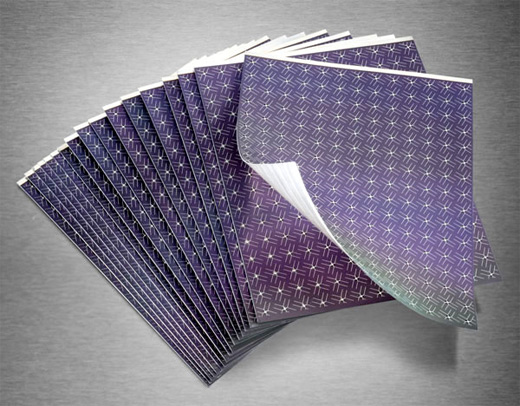 The Victorian Organic Solar Cell Consortium in Australia has started to showcase solar cells made with a 3D printer.
The Victorian Organic Solar Cell Consortium in Australia has started to showcase solar cells made with a 3D printer.
According to Fiona Scholes, senior examination researcher at CSIRO they print them onto plastic in much the same way they print their plastic banknotes. She also said that joining their solar oriented boards is as straightforward as associating a battery. It’s exceptionally cheap. The path in which it looks and works is very distinctive to ordinary silicon housetop solar based.
She even said that they might want to enhance the effectiveness of solar boards; they have to create sun powered inks to produce more vitality from daylight. She confirmed that they are certain they can push the innovation further in the years to come.
The gathering, comprising of researchers from the CSIRO, the University of Melbourne and Monash University have been taking a shot at the innovation for more than seven years and have made sense of an approach to inexpensively print the boards onto plastic, including advanced cells and tablets, empowering self charging gadgets. They are likewise ready to print straightforwardly on to dividers and windows utilizing a hazy sun powered film and case that they can line a high rise with boards, making it absolutely electrically independent.
However, the mass production and distribution of printed solar cells is not without its obstacles. While the panels are inexpensive to produce, an industrial printer requires a substantial capital investment to acquire. The printed panels can be vulnerable to moisture and may lead to lead contamination if broken. Companies such as Kyung-In Synthetic are testing new coatings for the cells to alleviate these problems. A cooperative system in which community members contribute resources and maintain democratic management of the venture may ensure sufficient start-up capital as well as the establishment of a strong local distribution network. Despite the challenges, printed solar cells are a powerful anti-poverty tool and represent a major step towards a 100 percent renewable energy economy.